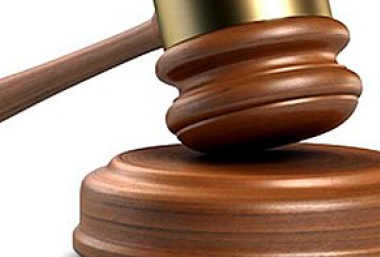Search warrants used to raid the home of Kim Dotcom were valid despite their deficiencies, the New Zealand Court of Appeal has held.
Dotcom and three co-accused face charges in the United States for criminal copyright violation and racketeering relating to their now-defunct file sharing website Megaupload. The US is currently seeking an order to extradite Dotcom from New Zealand.
Dotcom's mansion was raided in 2012 at the request of the US government - Dotcom has since sought to have the search warrants declared invalid. He has also sought an order against the FBI for removing information from electronic devices seized during the raids, and taking that information back to the US.
High Court decision overturned
The Court of Appeal's decision, released this week, overturned a High Court finding that the search warrants for the 2012 raids were so broad and unspecific they must be nullified.
The Court of Appeal agreed the scope of the warrants was too broad and did not specify enough details about the alleged crimes they related to. However the Court did not agree these problems were so serious that the warrants could be nullified. The court held the defects were 'in form not in substance' and an 'error of expression' only.
The decision may make it difficult for Dotcom to challenge the validity of evidence used against him by the United States government in relation to a number of charges he faces in that country related to copyright infringement. Dotcom's legal representatives have indicated he may seek leave to appeal to the Supreme Court.
Removal of information breached order
However, the Court of Appeal has upheld the High Court's finding that the FBI's removal of information stored on clones made of Dotcom's computers breached an order by the Solicitor-General.
The Solicitor-General, acting on behalf of the Attorney-General, had directed 'any items seized pursuant to those warrants remain in the custody and control of the Commissioner of Police until further direction from [the Crown Law] Office'. Despite this direction, forensic clones of some of the electronic items seized during the searches were made by the FBI and taken back to the United States in March 2012.
The court held the intent of the direction was to allow 'a breathing space' ensuring that things seized were protected 'in a custodial sense' while the Attorney-General or Solicitor-General decided whether or not to permit the things to be sent overseas in accordance with the request received from the United States. This included not only the physical 'things' seized, but information stored on them.
'It does not make sense of the provision to suggest that the 'thing' does not include its contents or computer data. Such an interpretation would give the Commissioner power to 'deal with' the 'thing' by accessing and disposing of the contents or the data and would deprive the Attorney-General of the power to give a direction as to the manner in which the 'thing', including its contents and the data, were to be 'dealt with'.'
Extradition hearing still to come
Dotcom is still awaiting a hearing to decide if he will be extradited to the United States to face trial on a number of copyright, money laundering and associated charges. The hearing has been delayed several times already and is currently scheduled for July this year.





